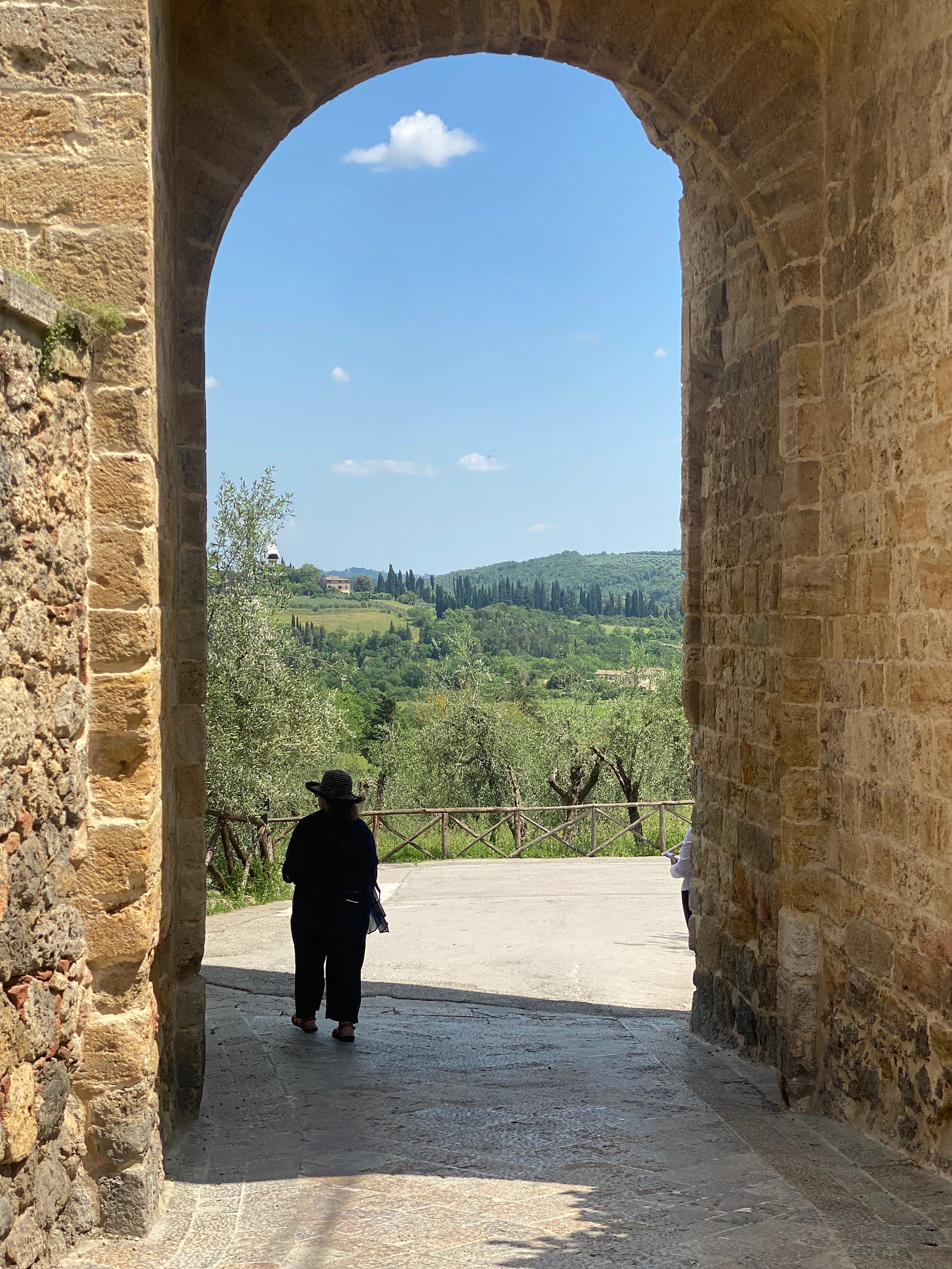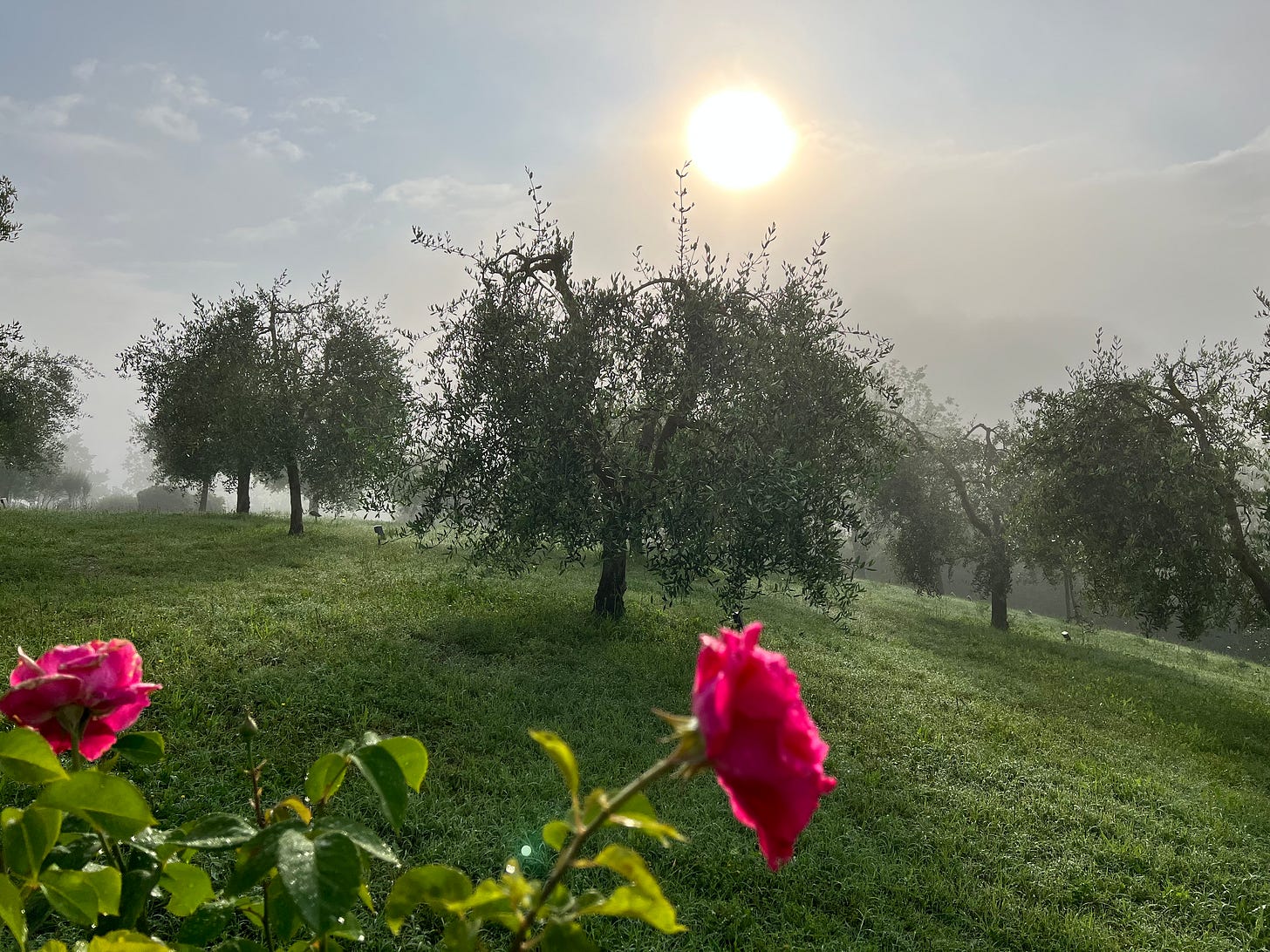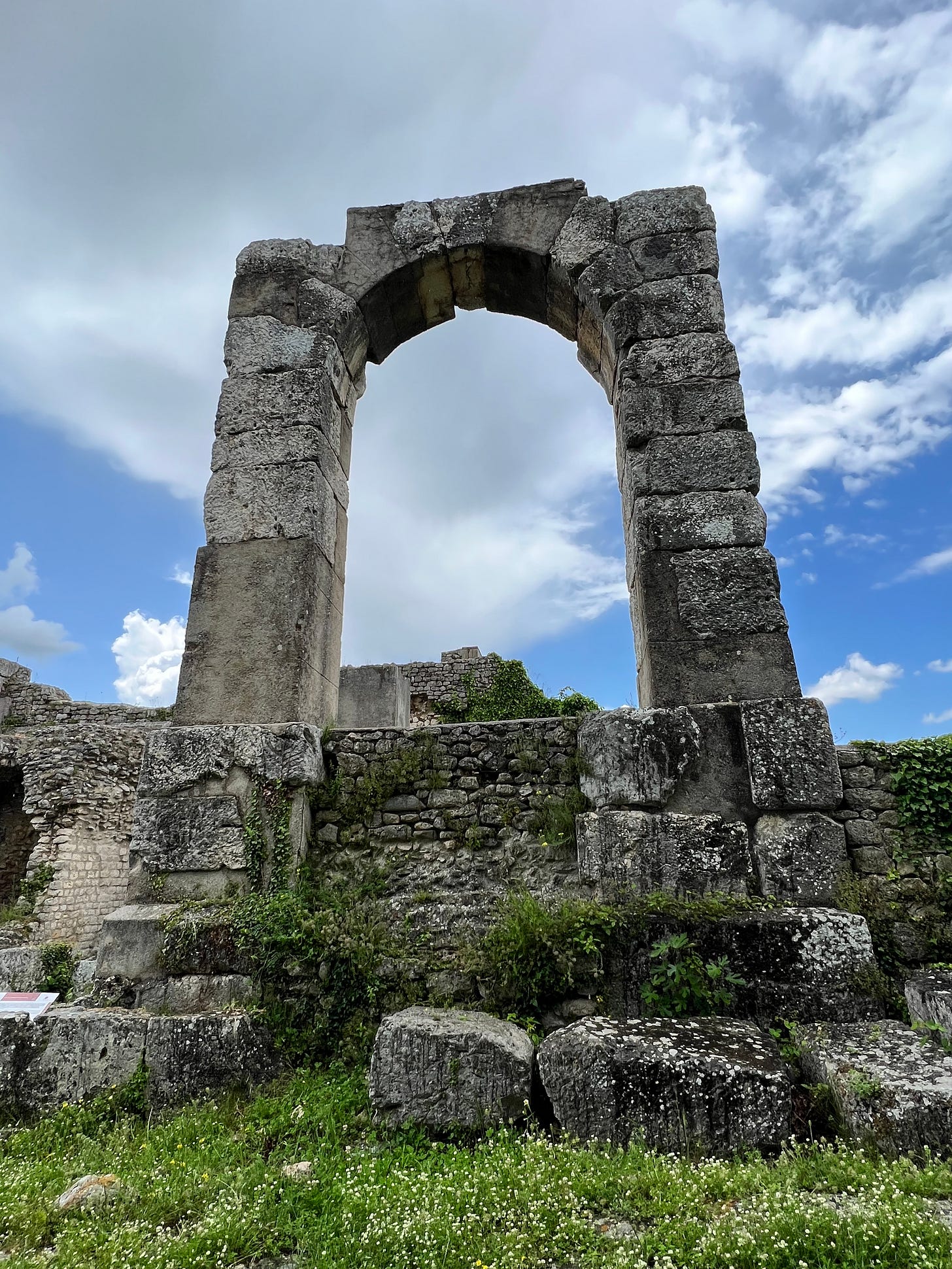Travel + Experiential Learning = Thriving
There's no substitute for going and doing, in person, out in the world!
I have returned from three weeks of teaching and vacationing in Tuscany and Umbria more refreshed than I’ve been in a long time. It was my first time in Italy, and my first time back in Europe in many years, so I saw it all with new eyes. And of course, in such a beautiful place, I loved what I saw!
Looking out of the walled medieval city of Monteriggione, Tuscany.
Let me pause to acknowledge that I also felt guilty for the carbon footprint of my air travel, and guilty for my enormous privilege in being able to take such a trip in these tough times. It was a working vacation, yes—I taught two separate weeklong writing workshops over the three weeks I was in Italy. But for me, teaching writing is fun, and to do it in such beautiful surroundings, with willing, enthusiastic writers—well, it felt much more like play than work to me.
It was somewhat reassuring to read this recent article in Raveller magazine by Sarah Howden, "Can I Go on Holiday When the World is Burning?" in which she articulates how important it is for serious people—activists, teachers, people like me who tend to take the weight of the world on our shoulders—to lighten up and allow ourselves to have some fun. To get out and experience the beauty the world has to offer, and the pleasures of good company, is to remind ourselves of what we are fighting for, Howden says.
Morning in the misty olive grove at Borgo San Fedele, Tuscany.
I also came back from this trip convinced that travel is essential for education. Learning by going and doing and experiencing is the best kind of learning, not least because it piques one's curiosity to get out and learn more.
Visiting the magnificent Basilica of St Francis in Assisi made me curious to learn more about the life and times of St. Francis and his incredible legacy of churches and monastic orders.
The Basilica of Assisi.
Visiting the mysterious Roman ruins at Carsulae made me want to research more about how the Romans lived throughout Italy, and how their incredible artistry with stone and waterworks persists to this day in Italian culture.
Eating the superlative artisanal foods and drinking the delicious locally produced wines made me want to learn more about small-scale agricultural production and how it has stayed the same for centuries in this verdant land.
And seeing the way Italians take a real lunch break every day, during which they laugh and chat over long, relaxed meals, underscored for me that yes, there is a better way than the usual American brown bag lunch by the computer, or fast food eaten in the car.
I came away from my trip convinced that study away should be built into high school and college programs and made available—ie, subsidized—for all young people, everywhere.
Imagine if the United Nations created something like an international Peace Corps (minus the “white savior,” missionary attitude), through which young people of all nations would visit each other’s countries to learn from each other as they worked together on whatever needed doing in the local community.
Perhaps some would visit Tuscany in the autumn to work on the olive harvest and learn how to make olive oil. Others might visit the Amazonian rainforest and learn about rainforest medicine from local shamans. Some might go up to the Arctic and work on building climate-resilient housing. The core of the experience would be reciprocal experiential learning, transforming and enriching everyone involved.
I'm also thinking about how the promise of subsidized international travel might be a good incentive to get American young people to take the study of languages more seriously.
Recently, at the college where I teach, students rebelled against the longstanding requirement of two semesters of accelerated beginning language (or one semester of intermediate, if they could test out of the introductory class). After research showed that most comparable private colleges had already relaxed their language requirement, we changed too, shifting the requirement to two semesters of language or literature classes, meaning that it could be satisfied without learning a single word of a non-English language.
The faculty agreed to this hoping that many students would still voluntarily opt to take language courses. But between the advent of AI translators and the difficulties of travel in the Covid era, the majority of young Americans I meet seem less interested than ever in doing the hard work of learning another tongue—unless perhaps it's a computer language.
Getting out into the world again after the long years of Covid restrictions reminded me that the thin gruel of virtual reality is not real nourishment. There's no substitute for open-ended, immersive, real-life exploration of new places, people and cultures.
The world would be a better place if instead of subsidizing military bases and weapons depots, we subsidized international study-away programs, not only for young people but for people of all ages.
The WWOOF model might be a good one to adapt and expand beyond just organic farm exchanges; I am imagining a robust global experiential learning network of collaborative cultural exchange aimed at broadening people's minds, deepening their respect for each other and cultivating love for our beautiful, diverse planet.
Can there be any higher, more worthy goal for education?











I deeply enjoyed reading about your experiences and looking at the pictures. Most of my long-distance glimpsing into other cultures is nowadays vicarious and I am very grateful for what the internet offers me.
In my earlier years, I had many opportunities to travel, live in other countries and learn a lot.
I do support the idea of travel being deeply educational and subsidizing it for those without the money to do it seems fantastic.
“The world would be a better place if instead of subsidizing military bases and weapons depots, we subsidized international study-away programs, not only for young people but for people of all ages.“